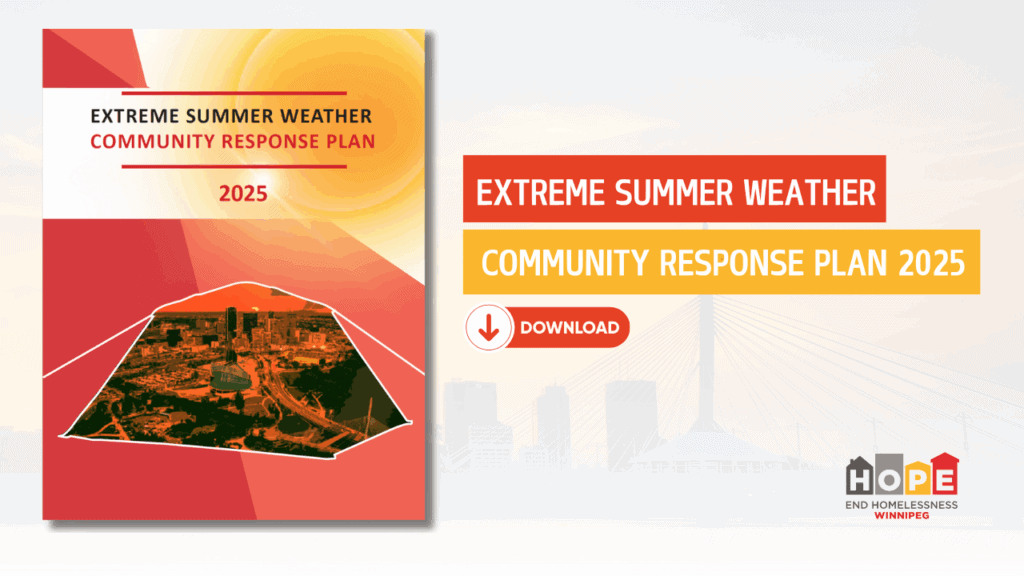
As temperatures rise, coordinated community action is vital to keeping people safe. The 2025 Summer Weather Response Plan outlines how Winnipeg responds during extreme heat events, especially for those experiencing homelessness. Developed by the Extreme Weather Response Committee, the plan includes key safety measures, locations for hydration and cooling, emergency contacts, and tips for preventing heat-related illness.
Download the full plan and resource guide to learn how you can stay safe and help others this summer:
